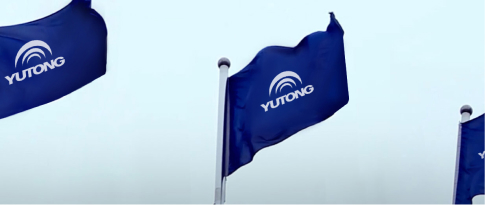All Yutong employees must strictly adhere to the company's anti-commercial bribery compliance management policy during business activities and collaborations with Yutong's dealers, suppliers, and other cooperative units.
Yutong prohibits directly or indirectly offering, promising, giving and authorizing the giving of money or any other valuables to public officials, relevant personnel of the counterparty and other relevant personnel who can influence transactions to influence the legitimate duties or actions of the counterparty for the purpose of obtaining or maintaining other improper benefits in business or commercial conduct.
Yutong also prohibits employees from accepting bribes and soliciting gifts or benefits directly or indirectly.
The relevant laws and regulations and the Company's punishment applies to the briber himself/herself, as well as personnel or organizations that promote or acquiesce in bribery such as approving bribery, covering up bribery or providing support in bribery.
Whether the relevant business behaviors of the responsible person meet Yutong's compliance requirements shall be judged according to the following aspects:
a) Timing: Is it in the business sensitive period that may affect fair decision-making, such as bidding process or important decision-making stage.
b) Purpose: Does it affect the performance of relevant personnel or normal business processes, and are there any improper demands.
c) Value: Does it conform to normal business practices, and does the gift, cash or cash equivalent exceed the general value.
d) Provision method: Does it need to be done in a non-public and frequent manner, and does it bypass compliance supervision.
e) Persons concerned: Are they politically sensitive figures of public officials and are they interested parties.
The Company strictly prohibits business practices that may be considered or reasonably suspected of being bribery or potentially adversely affecting or damaging the Company.
1 Gifts and Entertainment
Yutong prohibits gifts or entertainment for the purpose of influencing a decision or seeking improper benefits, because such behavior violates business ethics.
The risk signals are as follows:
a) For the purpose of seeking special treatment and attempting to obtain improper returns
b) Directly or indirectly pay cash or cash equivalents to the recipient.
c) Provide gifts of excessive value or luxury.
d) All regions, subsidiaries and branches bypass the Company's gift and entertainment compliance management process and provide entertainment to external parties in other forms.
e) Evading the Company's corresponding compliance management process through any fraudulent behavior.
If a gift or entertainment providing behavior meets one or more of the above characteristics and its necessity, reasonableness and compliance cannot be explained, there are reasonable grounds to suspect that it is a potential bribery. Such gift and entertainment are prohibited by the Company.
2 Provide Travel Expense for External Party
In the process of business development, travel expenses borne by the Company are not prohibited for legitimate and reasonable commercial purposes, provided that the content, amount and method of providing travel are appropriate.
Yutong prohibits providing travel expense for external party with the intention of bribery.
a) Provide travel expense on non-business purposes for external party, such as travel expense on private tours for customers.
b) Provide travel expense on contents that are inappropriate, illegal, not in line with business practices or may be identified as bribery, such as private jet travel, gambling, adult entertainment, drugs and drug-like substances.
c) Violate applicable laws and regulations.
d) Violate the relevant policies and regulations of the receiving party on accepting travel expense.
e) Submit false information or falsified materials.
f) Provide travel expense on any form during the business sensitive period to personnel of external parties who have decision-making power or can exert significant influence on matters (or businesses) corresponding to the sensitive period, except that such an offer is based on existing statutory or contractual obligations.
3 Third-party Cooperation
Prior to cooperation:
Before cooperating with a third party for the first time, an anti-commercial bribery compliance assessment shall be carried out on the third party. Assessment includes conducting questionnaire surveys, signing integrity construction agreements, anti-commercial bribery agreements and other compliance commitments. For partners of major transactions, independent third-party research institutions can be introduced to carry out systematic due diligence.
During the cooperation:
If new risk signals or violations are identified during cooperation with a third party, the compliance control and response measures in line with the risk level must be implemented according to the company's defined response process. This may include but is not limited to suspending the cooperation, suspending payment, re-examining the partnership, conducting a compliance audit, or even terminating the cooperative relationship with the third-party cooperative unit. In addition, the right to pursue necessary legal remedies will be reserved.
a) The products and services to be provided by the cooperative organization are inconsistent with its business scope, qualifications and project experience, and the organization cannot reasonably explain the reasons for providing those products and services and cannot provide capability certificates.
b) The cooperative unit was punished for corruption.
c) The cooperation unit is designated, recommended or internally designated by government officials, customers or other stakeholders.
d) The payment conditions and methods required by the cooperative unit do not conform to the general industry standards, or there are abnormal payment methods.
e) The cooperative unit is a shell company or individual.
f) The cooperative unit is an offshore company, and cannot fully explain the necessity, rationality and compliance of the transaction.
g) The service fee is too high and the necessity, rationality and compliance of the transaction cannot be explained fully.
h) The content of the cooperation agreement is vague.
4 Sales Business of Dealers
The Company will carefully choose, utilize, and manage dealers in order to effectively manage their sales business. The Company shall strictly abide by applicable national laws, overseas anti-corruption and anti-bribery laws and regulations, and the Company's Regulations on Anti-Commercial Bribery Management during the cooperative relationship with dealers. This is to ensure the proper assessment and management of potential bribery risks within the dealer sales business.
a) Submit false or forged documents or materials as supporting documents.
b) The application items and purposes of selling price/discount, rebate and other amounts are inconsistent with the substance of the business, that is, the accounts are inconsistent with the actual transaction.
c) The Company's selling price applied by the dealer makes the profit lower than the established reasonable range, or the discount is higher than the established reasonable range, and the necessity of such price or discount cannot be explained.
d) The dealer requests additional rebates or other incentives beyond those specified by the Company for dealers of the same tier, and cannot explain the necessity and reasonableness.
e) The dealer requires the Company to pay the dealer rebate in cash through purchase or other expenses.
f) There is evidence to prove that the dealer has potential commercial bribery intention or behavior in distribution, or has the intention or behavior of obtaining improper benefits for the Company.
5 Commercial Sponsorship
Because of its special nature, commercial sponsorship is easy to be used as a covert channel for bribery. Therefore, before carrying out commercial sponsorship activities, applicants and application departments shall consider whether the activities are consistent with the Company's strategic development objectives and can enhance Yutong brand image, and obtain the approval of the Company before implementation.
a) The recipient of the sponsorship is individuals or government agencies.
b) Provide sponsorship to business partners during special periods without justification.
c) Failure to sign a sponsorship agreement.
d) Use the sponsored funds or in kind for projects unrelated to the sponsorship.
e) Sponsored funds are used to purchase items that do not conform to the nature of activities and items with bribery risks.
f) Provide commercial sponsorship at obviously unreasonable prices.
6 Public Welfare Donations
The Company has always supported and encouraged employees to participate in public welfare undertakings. However, using public donations as a cover to conceal corrupt purposes is strictly prohibited.
a) The recipient is not legally established or has no corresponding qualification, or the recipient has records of bribery cases, violations and sanctions or negative media information from public channels.
b) Make donations to governments, political organizations, for-profit organizations or individuals.
c) Do not sign a legally binding donation agreement.
d) The donation agreement is attached with commercial conditions, and the donation is carried out for commercial benefits.
e) Donate illegal and unreasonable materials.
g) The public welfare donation bills provided do not meet the requirements of local financial and tax laws and policies.f) Use donated property for non-public welfare activities.
h) The donation payment method is abnormal or the donation activity does not actually occur, and the money is transferred to a third party through donation, resulting in the risk of improper payment.
7 Disciplinary Action
Yutong adopts a "zero-tolerance" policy on bribery. Yutong will impose appropriate disciplinary measures on any personnel who violate anti-bribery laws and regulations and/or the Company's anti-corruption compliance management requirements. Please refer to the Yutong Bus Regulations on Reward and Punishment Management for details on the disciplinary action.
8 Consultation and Reporting
If you have any doubts about a particular behavior or activity, you can consult the following personnel for help:
a) Your direct supervisor, department head, or higher-level management;
b) Discipline inspection commissioner of the Company or system;
c) Criminal Compliance Management commissioner of Legal Affairs Department.
Yutong encourages all customers, cooperative units and employees to supervise and report the business behaviors of the Company or its employees and cooperative units. If you discover any violation of this policy, please report it promptly. Reporting channels: E-mail: lzyx@yutong.com
Any information involved in the report will be kept strictly confidential, and retaliation against the whistleblower is strictly prohibited.





























